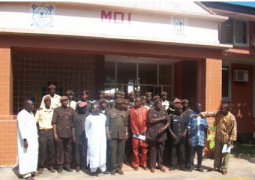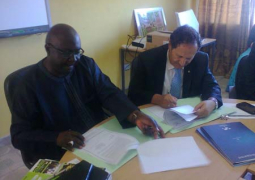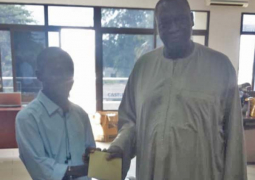The Independent Electoral Commission (IEC) has set the pace for intensive electioneering to commence with the announcement of the country’s election calendar a few days ago, which stated that Presidential Election takes place on I December 2016; the National Assembly elections on 6 April 2017 and Local Government elections on 12 April 2018.
But there is a big challenge for especially opposition parties and would-be independent candidates, who will have to meet the newconstitutional requirementof paying half a million dalasisto register a party, D500,000 to contest for the presidency, and D50,000 to contest for a parliamentary seat.
Political parties will also have to meet the condition of garnering up to 10,000 voters across the seven regions of the country for them to be qualified to take part in the forthcoming election.
Fulfilling all these requirements, according the Elections Act, should be done by March 26, 2016.
Also, according to the constitution, presidential aspirants should be less than 65 years, which is the age limit for one to become president of The Gambia.
We, however, would like to state that since we are a democratic society, there should be a level playing field for all, as we count down to voting day.
All politicians who will meet the requirements after March 2016 should be given equal access to the state media, and permitted to go around the country to conduct their affairs peacefully, even as we await election campaign period to be declared.
We should have in mind that both the public and private media should play their role by educating and informing the public.
As a democratic state and a signatory to Article 19 of the UN Charter, we should not wait until the election campaign period – which is usually two weeks to voting day - to allow political parties to have their affairs broadcast over the state media and in other private media outlets.
It should be noted that there is no second round in our election, according to the Election Act. What obtains in The Gambia is only an outright majority, which means that only a vote more than other contenders can decide the winner or the president-elect.
However, political analysts believe that a second round model with 51% majority of the votes, as it used to be in the country, should be revived since it could make a greater difference between those who are for and those against a winning presidential candidate.
It is also the model that obtains in many African countries.
As a nation counting down to presidential and general elections in 2016, 2017 and 2018, we should always endeavour to nurture and promote peace, as well as respect one another.
We should as well desist from tribalism and using abusive language in our electioneering campaigns.
“I vote in every general election, but I’m not a party member or an ideologue. I’ve told anyone who I’ve voted for.”
Brian Lamb
Read Other Articles In Article (Archive)
Witnesses recall at Fertilizer Commission
Oct 31, 2011, 12:10 PM




